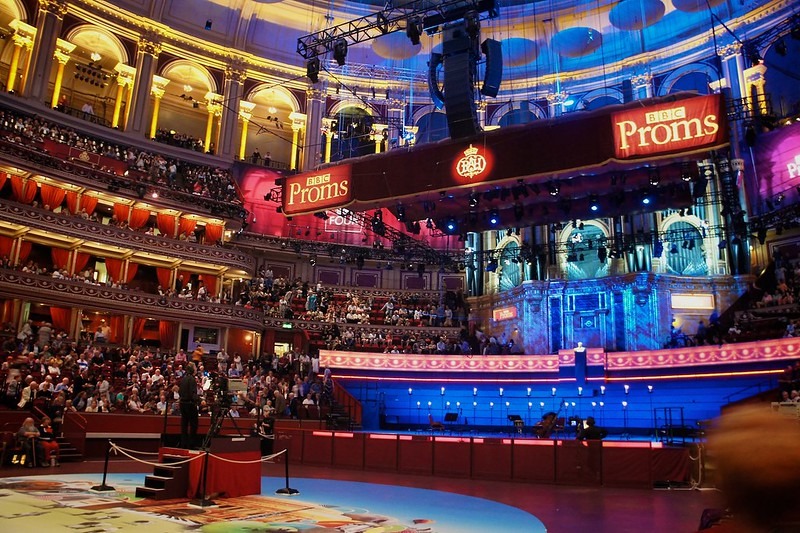The Royal Albert Hall is essential for music culture
As the severity of Coronavirus decreases, attention has turned to the economic impacts of bringing the country to a halt for three months. Most notably, this has led to a discussion over the role and purpose of the arts. With theatres and concert halls shut during the pandemic due to an inability to maintain social distancing, revenue has fallen through the floor. Even the most famous of institutions might not financially survive.
Significant among them is the Royal Albert Hall. Established in 1871 with a seating capacity of 5,272, it has been the location of the BBC Proms, a set of classical music concerts, for nearly 80 years. With hundreds of shows held every year, it is the beating heart of British culture, celebrating the rich array of musical and cultural talent across the world. The Royal Albert Hall is one of the locations most associated with displays of cultural exceptionalism.
Yet it is suffering severely from the economic implications of the pandemic. Craig Hassall, its Chief Executive, has warned that the Hall could go bust by March 2021 – ironically when it celebrates 150 years in existence – if urgent financial support isn’t provided. Having lost £12m, with no plans for reopening soon, the Hall has relied on a £5m loan and requires another £5m- £10m simply to remain open to the public.
During the lockdown, the Hall’s website has transformed into ‘Royal Albert Home’
A key issue is social distancing. Even with a one-metre social distancing rule, which has become essential for any business in the hospitality and entertainment sector to survive, the Royal Albert Hall would only be able to fill a third of its seats. However, an 80% seating capacity is necessary to create a profit. During the lockdown, the Hall’s website has transformed into ‘Royal Albert Home’, which is especially beneficial for viewers of the BBC Proms. The annual event will go ahead without an audience, with individuals watching and enjoying the music from home.
This is deeply concerning for the Hall’s financial prospects. The organisation receives no grant funding and is heavily reliant on philanthropic donations to pay its 525 employees and operate every year. Members, who have seats allocated for them, are crucial if the Hall goes through a difficult financial period to ensure it remains open to the public. They are likely to become even more essential as Mr Hassall warned that reduced audiences may only be allowed from October and November, which could never be a permanent solution. The problem, however, is universal, with many music venues suffering over the Christmas season if they aren’t able to open.
To lose such a beacon of history and heritage in its 150th year would be an unmitigated disaster for Britain’s cultural and musical future
However, there has recently been cause for optimism. The government have announced a £1.57bn support package for the arts: specifically theatres, art galleries and music venues. With the culture secretary Oliver Dowden explicitly stating the money was designed to help both historic innovations like the Royal Albert Hall and new, local innovations, the funding has been celebrated for attempting to sustain national culture. Hassall stated the news was an “absolute lifesaver for all of us”, especially given many theatres had announced redundancies.
But while the Royal Albert Hall may have been saved, not all organisations will be so lucky. Nuffield Southampton Theatres (NST) have permanently closed after failing to arrange an agreement with administrations. Similarly, the National Theatre have stated that, due to the ambiguity over where the emergency funding will be allocated, at least 400 of their staff won’t be retained after August, while 65% of Manchester Royal Exchange staff will be made redundant. So far, the specific funding for England will be made up of £880m in grants and £270m in repayable loans, with £100m being spent on cultural institutions like the English Heritage Trust.
For the Royal Albert Hall, the money is vital. The venue is known as ‘Britain’s village hall’, demonstrating its power in displaying the rich variety of music. From the 1968 Eurovision Song Contest to Paul McCartney, Elton John and Pink Floyd, the very best music has been displayed at the Hall. It showcases the everlasting power of music to transcend social divisions and unite people together in celebration of the wonders of song. To lose such a beacon of history and heritage in its 150th year would be an unmitigated disaster for Britain’s cultural and musical future. The funding promised from the government must be welcomed, but scrutiny is still essential to ensure it reaches organisations that require it, large and small.

Comments